The woman picked up the relic, the top of an ancient column, during a visit to the ruins of the Leonidaion in the 1960s.
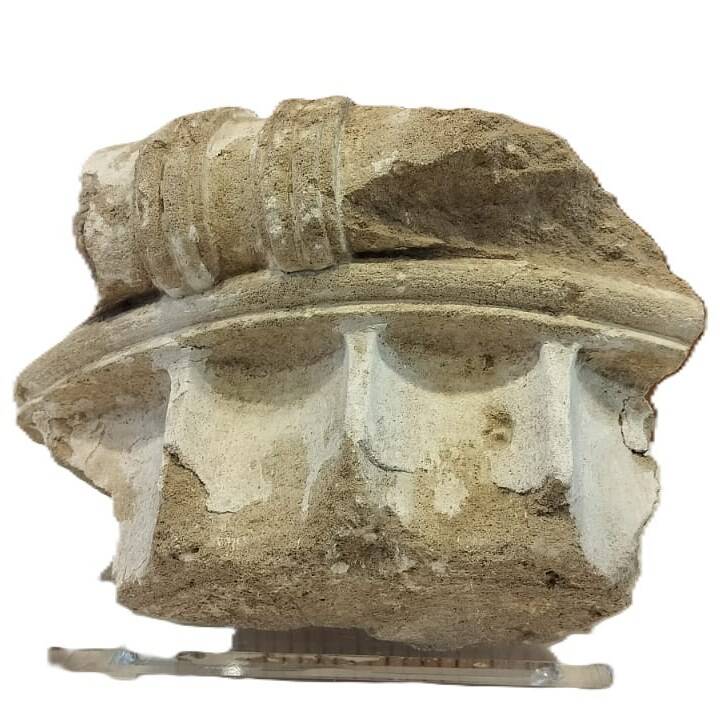
Greek Ministry of Culture/FacebookThe stolen fragment of a column, which the woman had kept for decades.
During a visit to a recently excavated part of the ancient Greek city of Olympia in the 1960s, a German tourist saw something that caught her eye. She picked up the object, took it back to Germany, and kept it for the next five decades. But after reading about the repatriation of other relics in recent years, she decided to return her “souvenir” to Greek officials as well.
The relic, a fragment of a capital — or the upper decorative element of a column — is a priceless piece of the story of Olympia, the site of the first Olympic Games. Greek officials have praised the “sensitivity and courage” of the woman who returned it.
The Story Of The Stolen Greek Relic
According to a press release from the Greek Ministry of Culture, the capital was picked up by the German woman at some point in the 1960s, while she was visiting Olympia. At the time, a guesthouse for Olympic athletes and other important figures known as the Leonidaion had just been excavated, and the woman was touring the ancient ruins when she stole the capital.
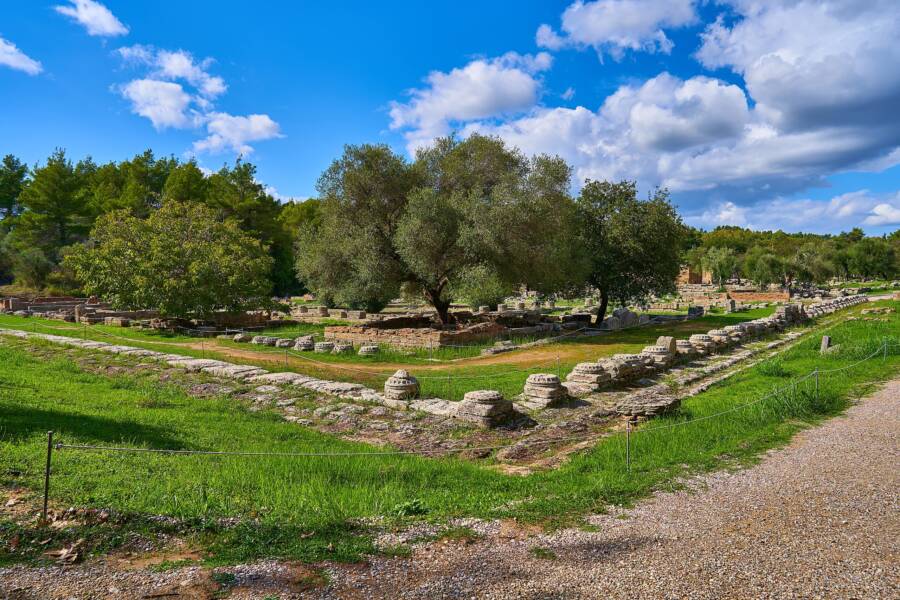
George E. Koronaios/Wikimedia CommonsThe Leonidaion, where Olympic athletes once gathered, as seen in 2020.
The woman took the Ionic capital, made of limestone and measuring about 10 inches tall and 13 inches wide, back to Germany. She kept it for the next five decades, but, after reading about the repatriation of other relics back to Greece by the University of Münster, she decided to give the capital to university officials so that it could be returned as well.
The university, in turn, reached out to Greek officials to return the ancient artifact.
“This is a particularly moving moment,” Georgios Didaskalou, the Secretary General of Culture, stated. “This act proves that culture and history know no borders but require cooperation, responsibility, and mutual respect. Every such return is an act of restoration of justice and at the same time a bridge of friendship between peoples.”
According to the press release, the University of Münster has become a “steadfast partner” for the Greek Ministry of Culture and has helped repatriate a number of objects. In 2019, it returned the “skyphos of Louis,” an ancient cup dating back to the sixth century B.C.E. that was awarded to Spyros Louis, the winner of the first modern Olympic marathon. And in 2024, the university returned a marble bust from the Roman era that once adorned a cemetery in Thessaloniki.
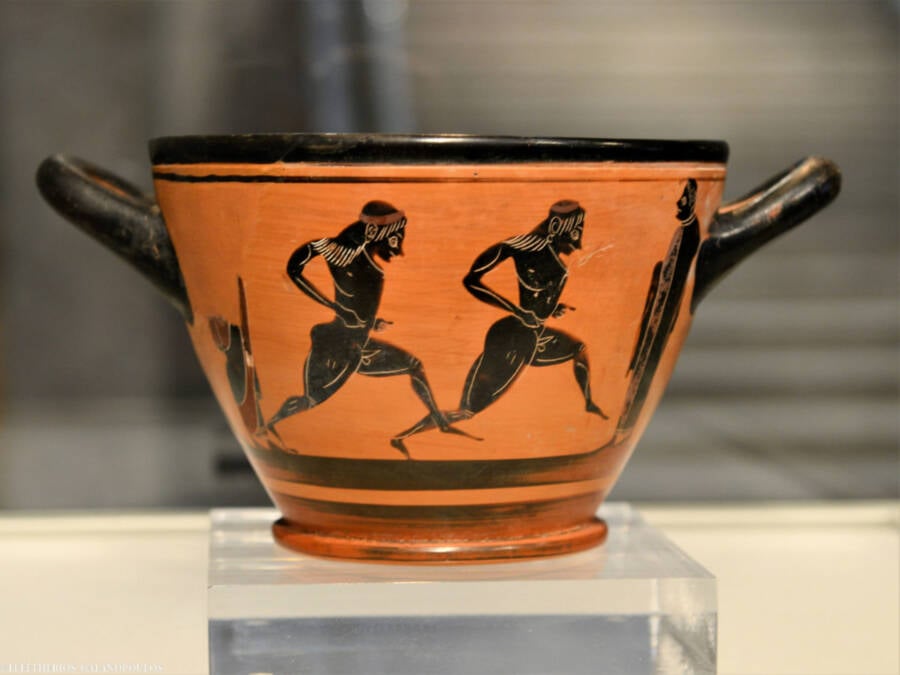
Eleutherios GalanopoulosThe skyphos of Louis, which the University of Münster helped return to Greece in 2019.
“It is never too late,” Dr. Torben Schreiber, curator of the Archaeological Museum of the University of Münster, noted, “to do the right, the moral, and the just thing.”
And, indeed, this column fragment is just the most recent in a string of ancient objects that have been returned to their place of origin over the years.
The Long History Of Stolen Relics
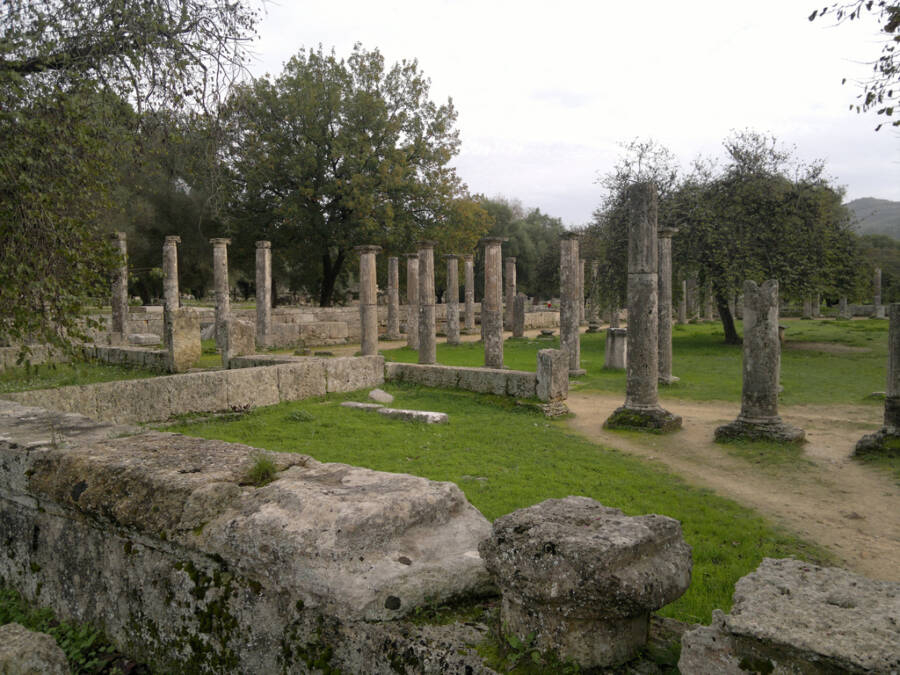
John Karakatsanis/Wikimedia CommonsRuins in Olympia, Greece, where the German tourist stole the capital in the 1960s.
The capital returned by the German tourist to Greece fits into part of a larger trend, as there’s been a push in recent years to repatriate objects to their place of origin.
Many of these objects are ancient and — like the capital taken from the Leonidaion — were pocketed by tourists. In the early 2000s, for example, a Canadian woman visited Pompeii and stole a number of artifacts, including two parts of an amphora, mosaic tiles, and a piece of ceramic. Unlike the German woman, who simply wanted to do the right thing, the Canadian woman returned the relics because she began to suspect that stealing the objects had “cursed” her.
The Pompeii relics, she wrote when she returned them in 2020, had “so much negative energy… linked to that land of destruction.”
Another relic returned to Pompeii in recent years was an erotic mosaic, which was seemingly taken by a Nazi captain during World War II. When he died, his heirs handed the mosaic back over to Italian officials.
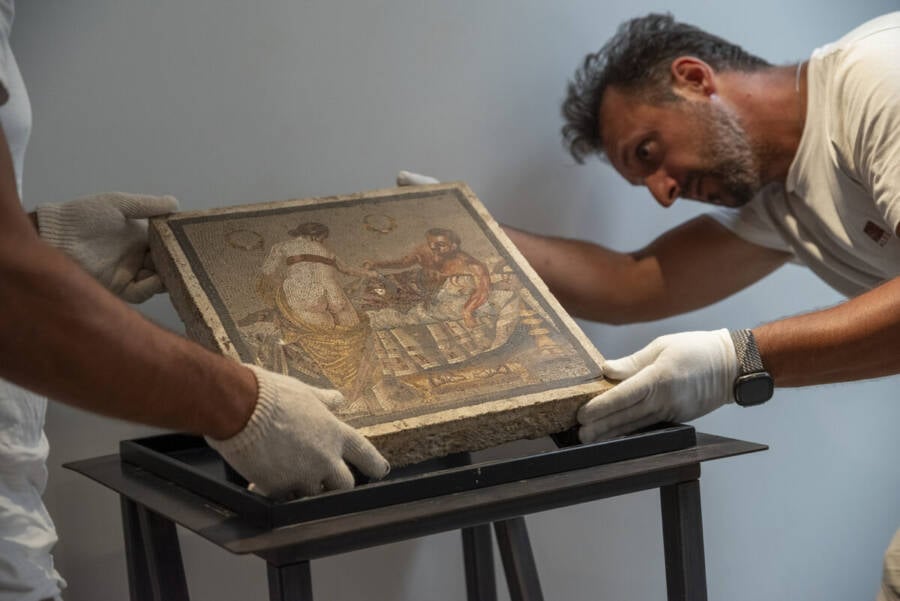
Pompeii Archaeological ParkThe erotic mosaic that was stolen by a Nazi captain during World War II and returned by his heirs 80 years later.
Not all of these repatriated objects are European or particularly ancient, however. In 2019, Michigan State University returned a 500-year-old mummy to Bolivia after storing it on campus for over a century. And in 2022, Harvard gave Chief Standing Bear’s tomahawk pipe back to the Ponca Tribe.
For tourists — or even soldiers or anthropologists — taking objects from ancient ruins may be tempting. But such artifacts make up small pieces of cultural and historical puzzles, and removing them from their homes means taking a piece out of the site’s larger story.
After reading about how a German woman just returned a stolen Greek relic more than 50 years after she first took it, enjoy these facts about life in ancient Greece. Or, go inside the thrilling stories of some of the most powerful gods in the Greek pantheon.





